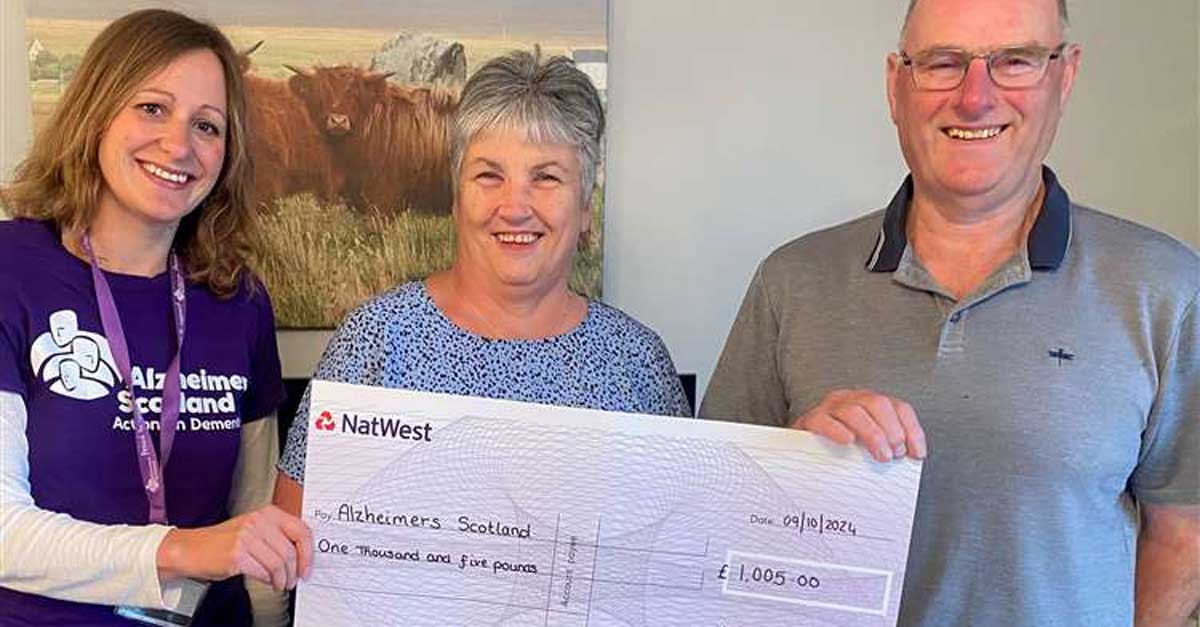In 2005, Dressember founder Blythe Hill first learned about human trafficking, a multimillion dollar criminal industry generating about $150 billion yearly worldwide. More than 40 million people are affected, one in four of whom is a child.
When Hill was a child, something traumatic happened to her that shaped her and eventually compelled her to combat human trafficking. When she was just four years old, she was molested for the first time.
“It was someone I should’ve been able to trust,” Hill said. “I had to unpack that for years and years afterward. The impact it had on me and my identity and my sense of worth gave me a glimpse into the exploitation that millions of women and girls experience every day. It took me a while to make that connection — that ‘oh, this is why this matters so much to me.’”
When she learned about trafficking, she felt helpless. She wasn’t a doctor or lawyer or social worker, but she wanted to help.
“I felt so fired up but felt so frustrated and powerless because I was a student and had no money to donate and didn’t feel qualified or called to move toward a career that would qualify me,” Hill said. “But I felt a passion to contribute.”
In 2009 she launched Dressember, a challenge to wear a dress for every day of the month of December. It wasn’t yet connected to any cause, just a fun style challenge.
But Hill’s friends started joining year after year, and after seeing the success that Movember had in raising funds for men’s health issues, she turned Dressember into an anti-trafficking fundraiser in 2013.
More than 1,000 people participated that first year.
When she had the idea to turn Dressember into a campaign, it was a “no-brainer,” Hill said. “Finally this would be my way to engage in this fight.”
She decided to first raise funds for International Justice Mission, a human rights organization headquartered in Washington, D.C.
“We set a huge, scary goal to raise $25,000, and then we hit that in three days,” Hill said.
They ended up raising $165,000 that first year. The very next month after the first Dressember campaign, Hill knew she was onto something. She filed for 501(3)(c) certification, and the next Dessember, they raised more than double what they raised the first year.
It grew each year. In the nonprofit’s first seven years, they raised more than $10 million benefiting anti-trafficking organizations.
Now Dressember is an international community of anti-slavery advocates working to end human trafficking.
Their vision: a world without slavery.
Their tool: a dress.
The challenge is simple: Every December, participants commit to wearing a dress — or tie — every day for 31 days, regardless of the occasion or weather.
Their vision: a world without slavery. Their tool is a dress. The challenge is simple: Every December, participants commit to wearing a dress — or tie — every day for 31 days, regardless of the occasion or weather.
Participants set up fundraising pages and campaign for the month to benefit Dressember’s 14 partners, which include International Justice Mission and The A21 Campaign, among others.
Participants can sign up as teams, and they receive ongoing support and community through the organization’s many resources, including a Facebook page, where more experienced participants share tips and encouragement for first-timers.
You don’t have to wear a different dress every day. Dressember offers resources for how to style the same dress in several ways, and advocates get creative with how to wear a dress in unconventional places or situations — such as going to the gym or even going to work or running errands, which can be especially challenging in cold climates.

Just last year, more than 7,000 people participated in Dressember. One of them, RuthAnn Deveney, lives in Pennsylvania, where it’s predictably cold each winter. She said wearing a dress in the winter makes for a great talking point.
She’s participated since 2014 and now leads a team each year. She says wearing a dress to raise funds uniquely works because women are disproportionately affected by human trafficking, and a dress stands as a symbol for standing up for women.
“Dressember is special because it activates and mobilizes the everyday advocate,” Deveney said. “The qualifications [to participate] aren’t lofty. It’s a very accessible symbol to take on. We take something everyday and ordinary and elevate it to provoke conversation to bring awareness to injustice. It’s an invitation to information. The dress is a platform.”
Since trafficking is a complex and often dangerous landscape, you have to be highly qualified to help in survivor-facing situations. So fundraising is often one of the only ways the average person can make a difference.
“It’s hard to get involved, and for good reason,” Hill said. “But there are a lot of people who have a great deal of passion for this issue and not many options for how to get involved other than writing a check or drawing a red X on their hand.”
Dressember is a tangible way to show your support, and the group has found that wearing a dress or tie is a fun, approachable way to talk about something heartbreaking and a way to engage with an issue where it’s easy to feel hopeless or unhelpful.
“There aren’t a lot of fun ways to talk about such a horrifying issue,” Hill said.
“When you have something that allows you to bounce around between dark and light and fun and fashion versus the heavy, horrifying reality of human trafficking, it makes it a lot more digestible for people who traditionally shut down when they hear about an issue like this.”
“[A dress] makes it a lot easier to talk about and a lot easier to listen to. People have fun with it. It’s a conversation-starter that’s disarming and nonthreatening.”
A version of this article appeared in a December 2019 edition of the Goodnewspaper.
Frequently Asked Questions:
What is the point of Dressember?
Dressember's annual campaign encourages participants to wear a dress every day of December as a way to raise money and awareness for the fight against human trafficking. The organization partners with leading organizations to dismantle trafficking in a number of ways.
What organizations does Dressember donate to?
Dressember provides financial resources to organizations working to bring an end to human trafficking and support survivors. Dressember supports Olive Crest, Truckers Against Trafficking, Businesses Ending Slavery & Trafficking, The Freedom Story, Pathfinders, youthSpark, Cast LA, Anti-Slavery International, International Justice Mission, Love 146, Willow International, A21, and Restore NYC.
Where can I learn more about Dressember?
Watch this documentary about Dressember, available for free on YouTube:
How can I participate in Dressember?
You can participate in Dressember by wearing a dress (or tie) every day of December as a fundraiser, by donating to other advocates' fundraisers, by donating to the organization throughout the year, or by helping bring attention to the organization and its mission to stop human trafficking.
Is Dressember legit?
Yes, Dressember is legit. Dressember has been a registered 501(c)(3) organization since 2014. During that time, they've raised more than $16 million and donated directly to organizations with proven impact. They make all of their financial statements available publicly and have been certified Platinum in Transparency by GuideStar.





